Up at sunrise, we set off in fog – and our first frost! Our lack of gloves meant that we were quickly walking with both sticks clipped together and alternating one hand in the coat pocket to keep the hands thawed. We were heading to Atapuerca and then on to Burgos.
Just a few hundred metres out from town we saw a green lizard about 30cm (1 foot) long, trying to find some warmth on the road.
The sunrise through the fog was quite spectacular
The path became a steep climb on rough flint as we headed up to the Cruz de Cardeñuela Rio Pico.
It was a tall wooden cross, and nearby a large labyrinth was laid out in flint rocks.
The labyrinth provides an opportunity to stop and contemplate the path and cycles of life, and above all it is an embodiment of the hermeneutic spiral – that is, where life seems to run in circles, yet we are not the person we were the last time we were in that situation, so we can bring new wisdom to bear on a previous situation. So too, as we walk the labyrinth, we encounter where we were, but subtly repositioned from the previous rotation. It is an ancient tool for meditation on the path of life – just as the Camino itself becomes a metaphor for the life we live.
I tried to get a photo from normal height, but needed the ‘selfie’ stick to get some altitude. It was times like this I wish I had carried a small lightweight fold-up drone copter 😉
The flint proved to be a clue to the special nature of this region. By now we were in the Atapuerca Mountains where some of the most important archaeological finds of the 20th century were discovered.
As we came towards the town we noticed some standing stones off to the side – they turned out to be markers commemorating the discovery of various hominid species, the discoverers and the organisations behind the discoveries.
It is an ancient land, inhabited by hominids – precursors to modern humans – who painted caves and produced finished knapped flint tools. All this was discovered during construction of a railway tunnel in the early 1960s.
Remains of Homo Antecessor (antecessors to Homo Erectus) and homo Heidelbergensis dating back to 1.2 million years ago were found in nearby caves – the oldest hominid remains found in Europe. We were walking through land continuously occupied by humans and human ancestors dating back over a million years. Today, the caves where these finds were discovered is a working archaeological site and has been listed as a UNESCO World Heritage site.
We went up the road to investigate the possibility of a site visit – but it was early, and the site was closed. As it turns out, the only way to visit is by a tour commencing from Burgos museum(!).
Other well-meaning pilgrims called out we headed up the road, pointing out that we were heading off the Way. We waved and called out to say we knew where we were going. And before long we turned and headed back into the small village of Atapuerca. for breakfast.
Our heads filled with visions of our distant forebears occupying this land, first as hunter-gatherers then as neolithic farmers and so on through to today, we headed off towards Burgos.
We passed through Cardeñuela and climbed again to get our first view of Burgos laid out beneath us.
It is not a great walk into Burgos – flyovers and industrial parks make up the landscape until we get to the old part of town.
We headed to a pension behind the Cathedral and considered all that we had encountered in this day. And we decided on a rest day.
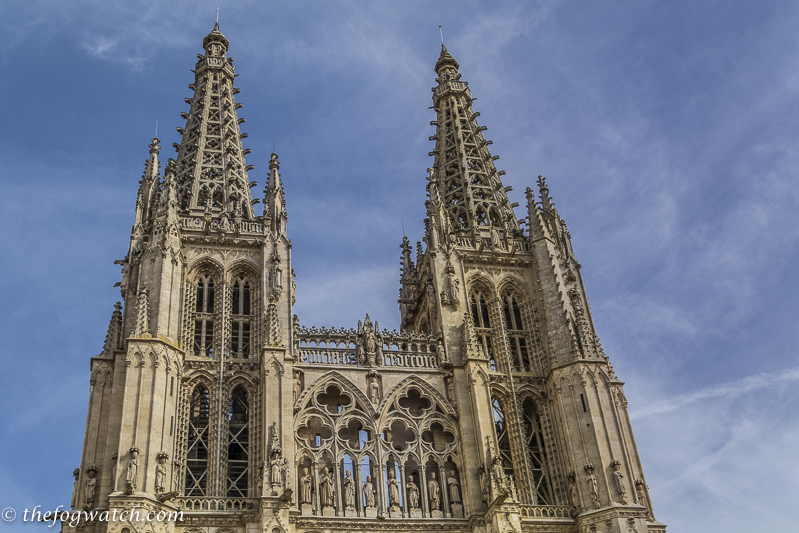
________________________________________
INDEX – If you wish to follow our journey from the start, or jump in to any of the Camino posts,
here is a link to the index page – also found in the navigation bar at the top of this blog
________________________________________
You can have these posts delivered to your in-box by entering your email address and clicking the ‘subscribe button to your left, then respond to the confirmation email in your in-box 🙂

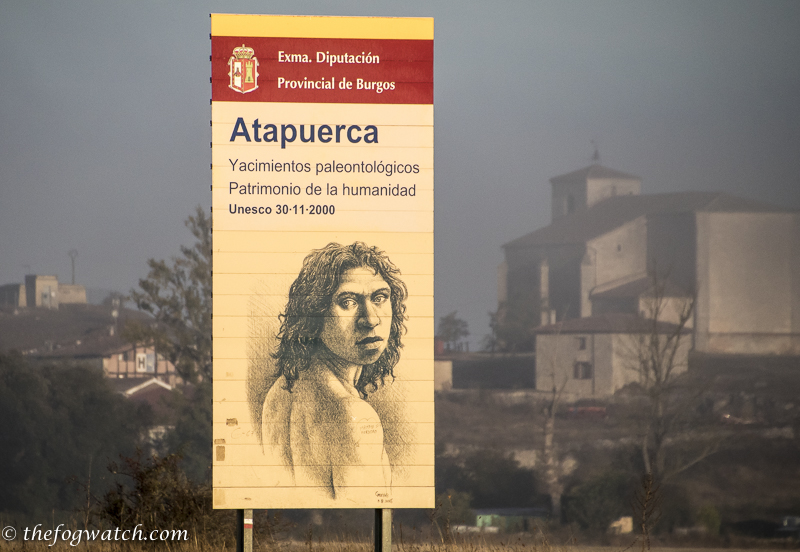
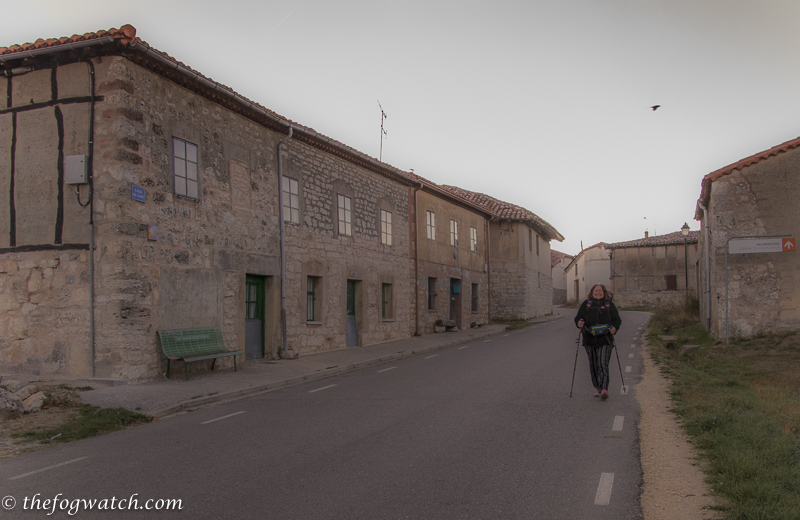
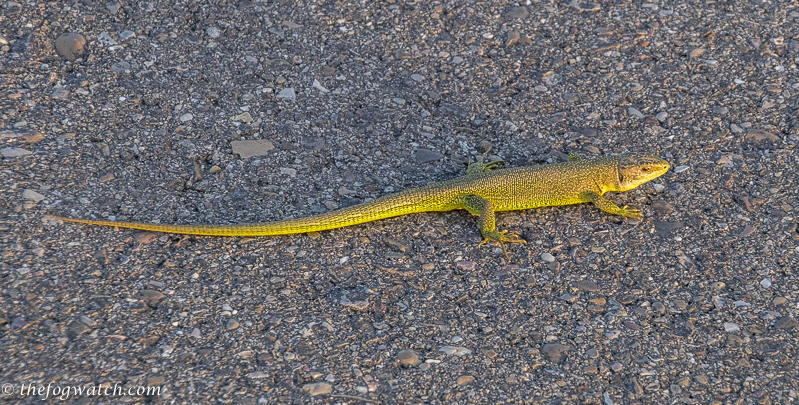
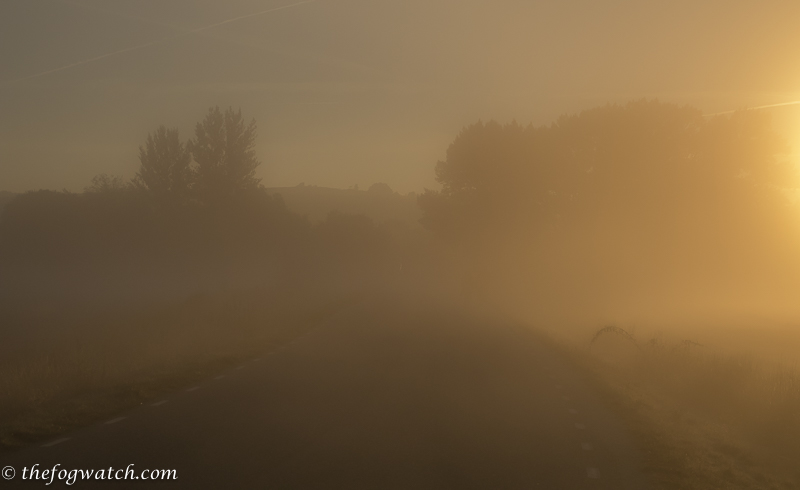
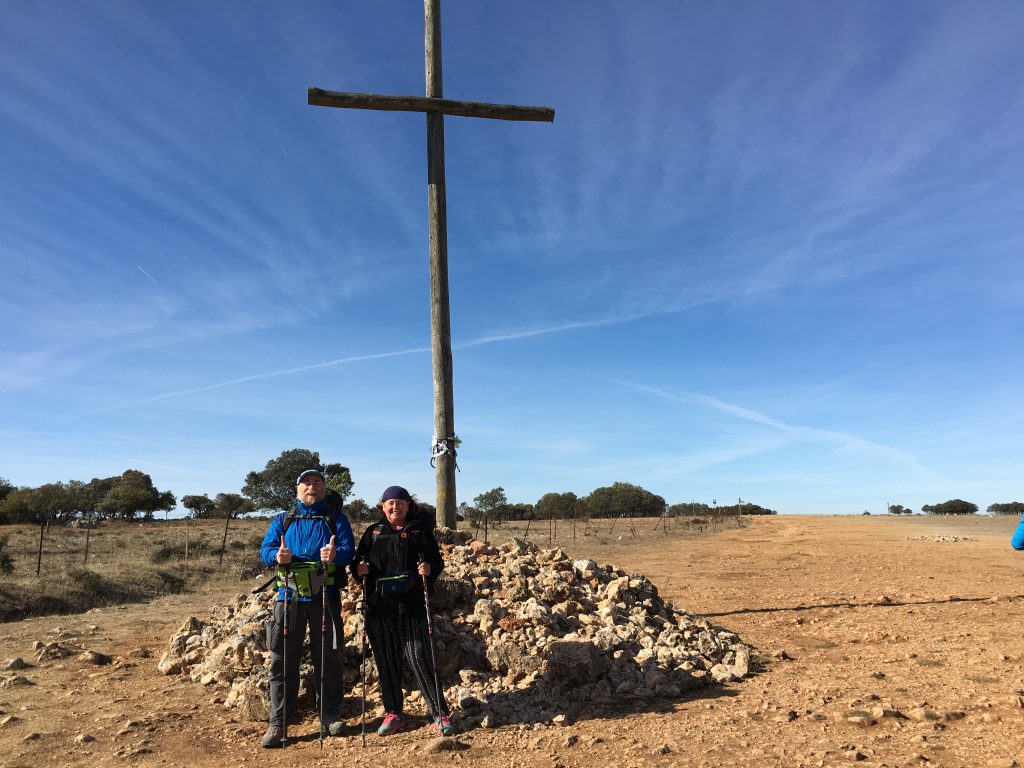
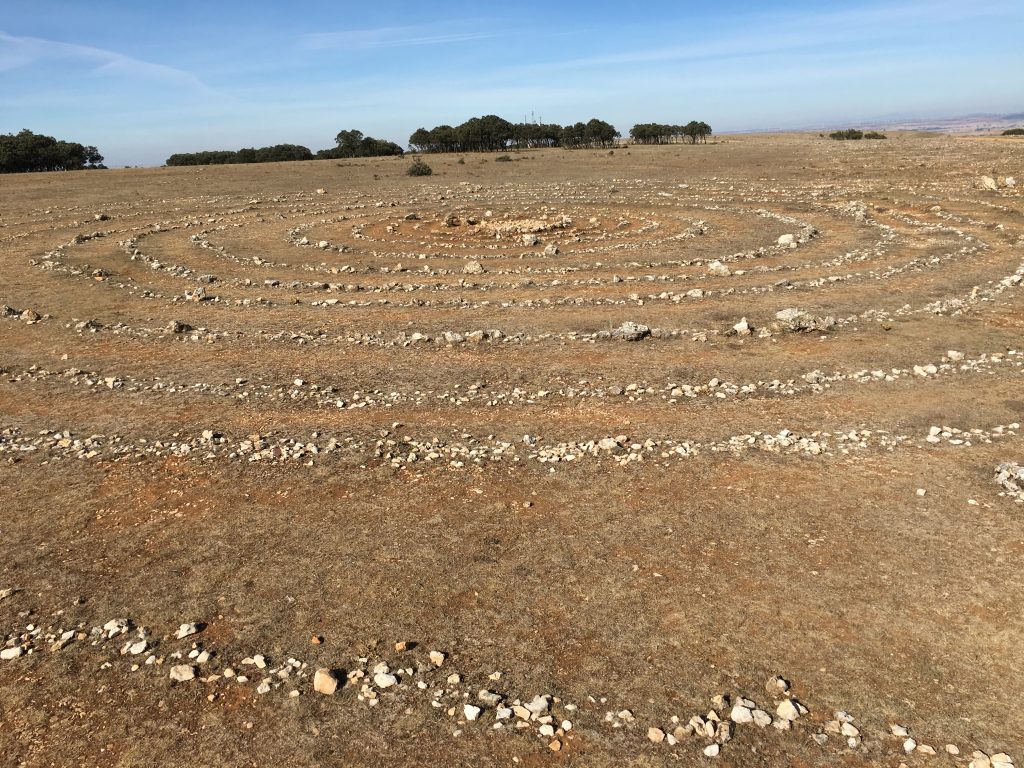
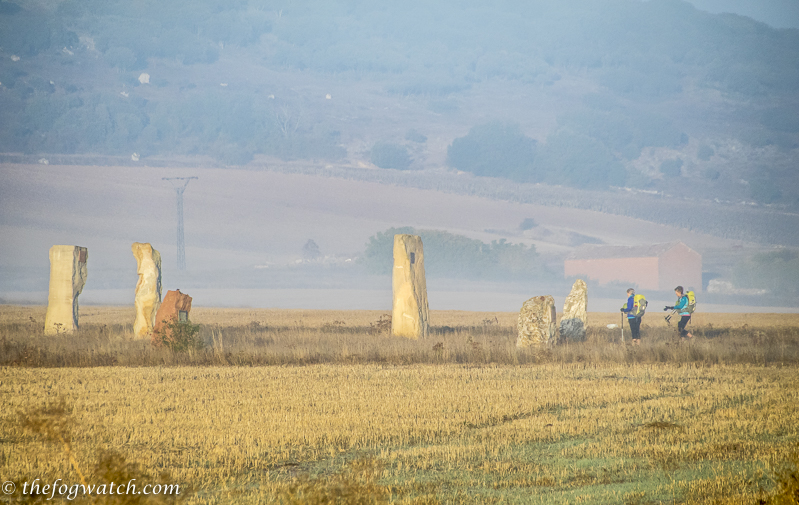
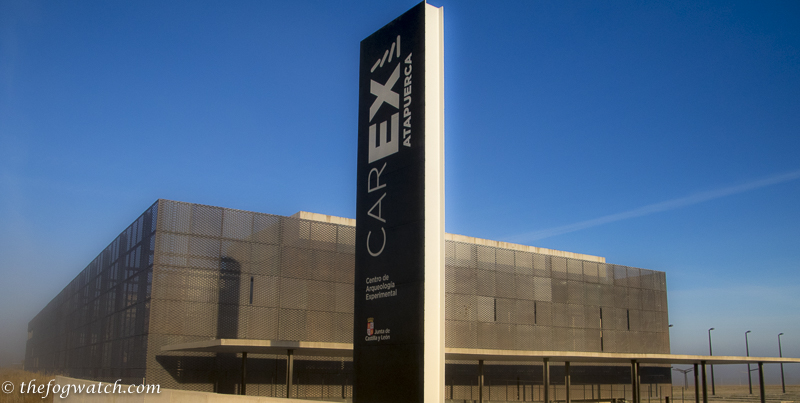
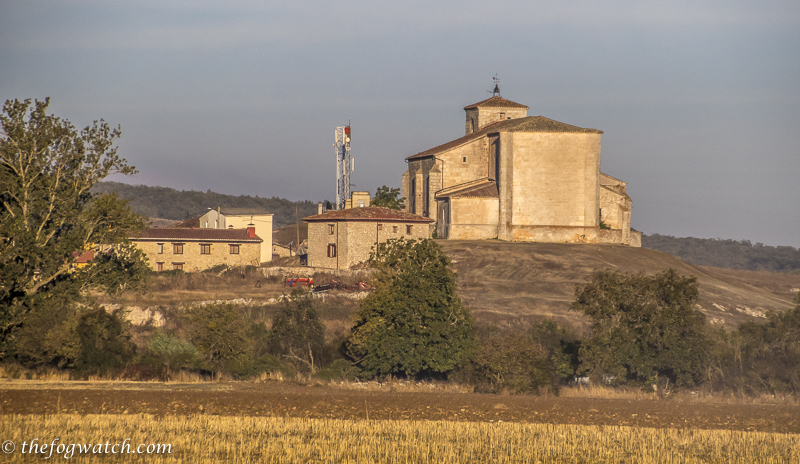
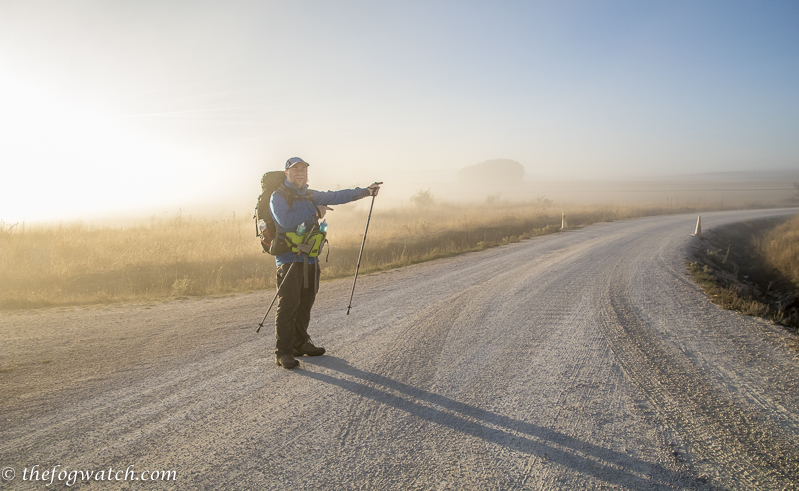
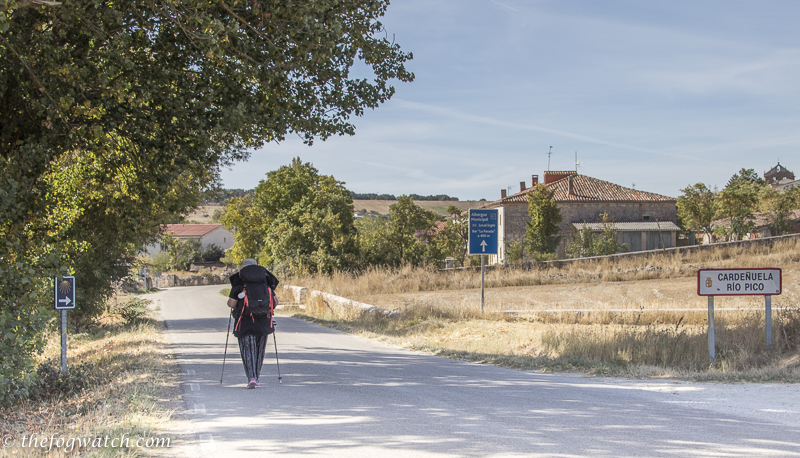

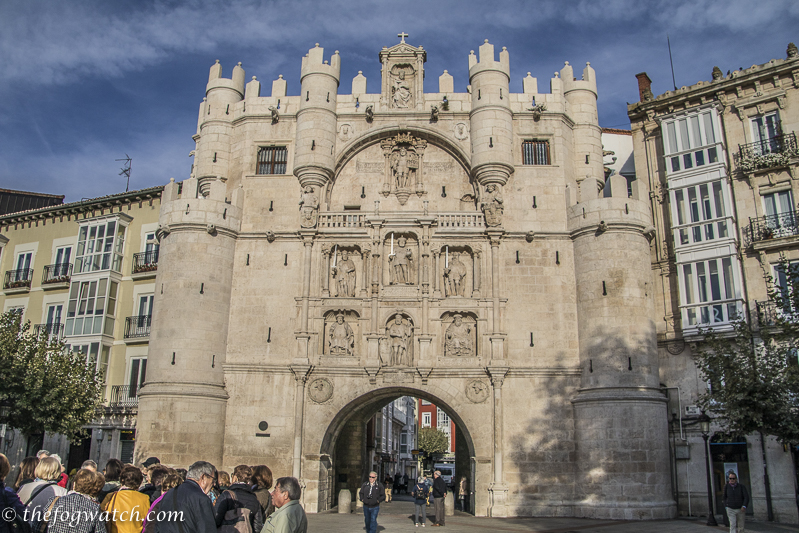
Which way did you walk into Burgos, through the industrial area or another route? We have been told there is a more picturesque route. Do u know if this correct?
Apparently, there is a more picturesque route – but we didn’t find it.
There is a path beside the river all the way to the gate into the cathedral area. I walked it on my second time into Burgos. Much nicer than than the other options.
Thanks Wayne – we’ll try to go that route on our next Camino 🙂